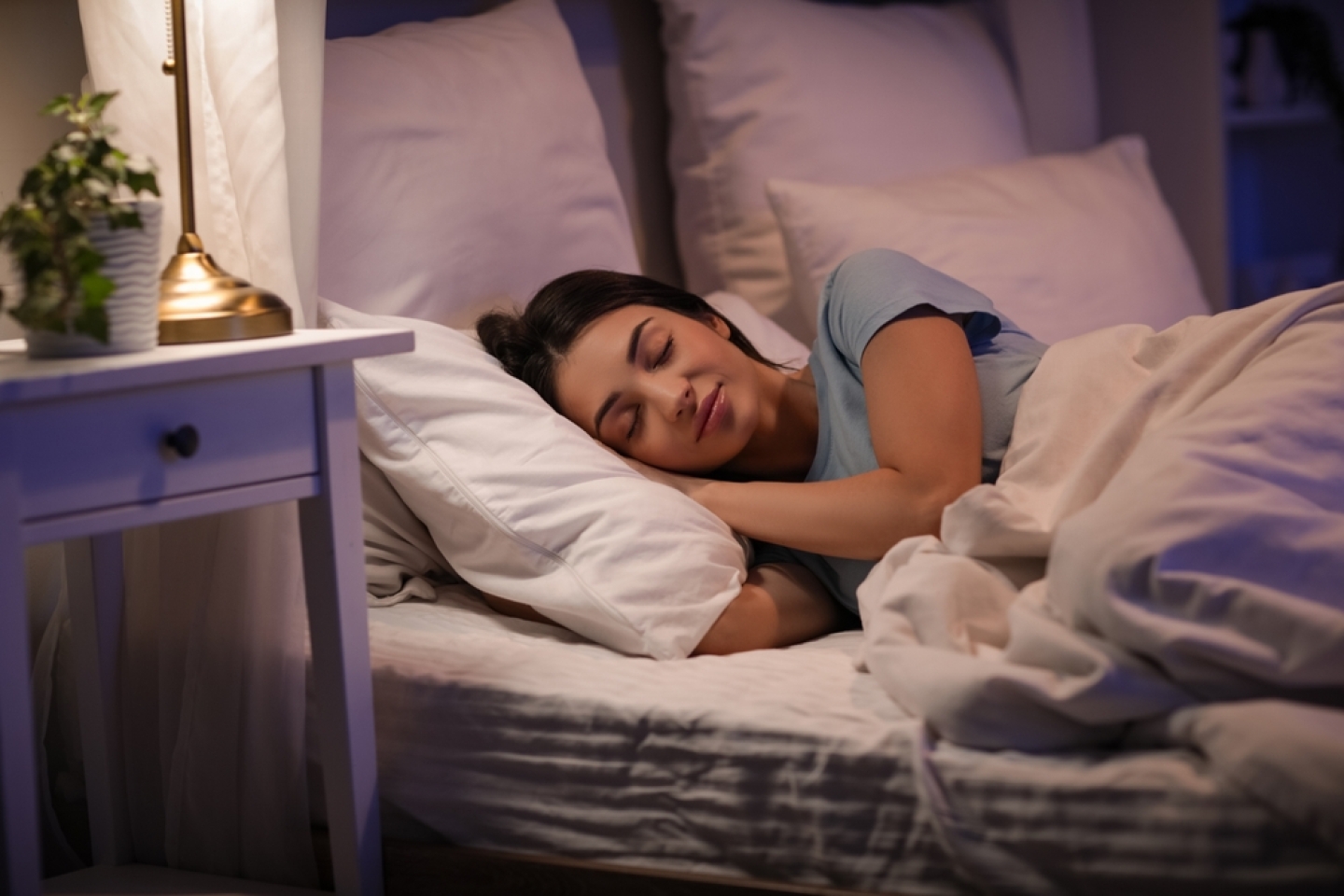
Everyone these days seems to crave better sleep, and New York City dwellers are among the most sleep-challenged of all. Between the bright lights, noise and stress for which the city is famous, we New Yorkers could use all the help we can get.
It turns out that our habits, behaviors and lifestyle choices play an important role in the quality of our sleep. In what follows, Dr. Ana Krieger, professor of clinical medicine and attending physician at Weill Cornell Medicine, shares her insights into these under-recognized contributors to good sleep.
Let’s start with diet. As chief of the sleep neurology division at Weill Cornell, Dr. Krieger sees diet as a critical component of good sleep hygiene, both in terms of the content of our evening meal and its timing.
“Eating too close to bedtime, or eating spicy or heavy meals at night, may affect your sleep quality,” she says. “These habits can also lead to gastro-esophageal reflux, further interfering with sleep.” Reflux can also exacerbate snoring and sleep apnea—a disorder characterized by pauses in breathing or shallow breathing during sleep.
A rule of thumb is to eat light and eat early. Avoid foods that may cause indigestion or bloating, or that are difficult to digest.
Ideally, she says, “the last meal of the day should be 3 or more hours before bedtime. If you need something to eat later at night, I recommend a light snack, such as yogurt or fruit slices.”
Foods that contain melatonin—berries, for instance—might lead to better sleep, Dr. Krieger says. “However, their effect is typically not strong enough to be noticeable.
“Some people have used tart cherry juice at night, given its high melatonin content, but increasing liquid intake shortly before bedtime may lead to sleep disruption if you need to empty your bladder in the middle of the night,” she adds.
At night, avoid the following:
“Staying physically active during the day will help to improve sleep,” Dr. Krieger says. “People who exercise are more likely to have better sleep quality than those who are sedentary.”
The term “sleep hygiene” refers to the habits and behaviors associated with sleep. It includes the time we go to bed and wake up and the activities we engage in before going to bed, during sleep and after waking. Keeping a regular sleep schedule is critical to optimizing sleep health, she says.
Often, people shift their schedule on weekends or days off by going to bed later or sleeping in. “This is not a good practice,” she says, “as it dysregulates the underlying rhythm of sleep and may also affect how well rested and alert we feel during the day.”
It turns out that lifestyle choices are part of our sleep hygiene. “Optimizing eating and drinking habits, managing stress, keeping a regular exercise routine and having a quiet, cold and dark environment for sleep are all important aspects of sleep hygiene,” she adds.
“Light can suppress melatonin and affect our ability to sleep well at night,” says Dr. Krieger. “Be proactive and assess your light exposure 1 to 2 hours before bedtime. Artificial light from devices, or even from a very bright bathroom, may reduce melatonin secretion in the brain.
“Sometimes, excessive light may come through your bedroom window at night,” she continues. “Adequate blackout shades will help to block out light and improve your sleep.”
The temperature of your bedroom matters too, as we sleep better in colder rooms. And the presence of others—bed partners, children or even pets—matters as well. Their habits at night may further disrupt your sleep. These issues can be discussed and negotiated within your family, she says, or with a trusted family physician.
A soothing and relaxing bedtime routine can help us sleep better. Approaches to reducing stress and quieting our minds include:
“Reducing stressors can be difficult, so using relaxation strategies to lessen the effects of stress before bedtime can be an important way to improve your sleep quality. I’d advise making these an integral component of your sleep hygiene.”
To make an appointment with a sleep specialist at Weill Cornell Medicine, call the Center for Sleep Medicine at (646) 962-7378 (REST), or visit the center’s website here.